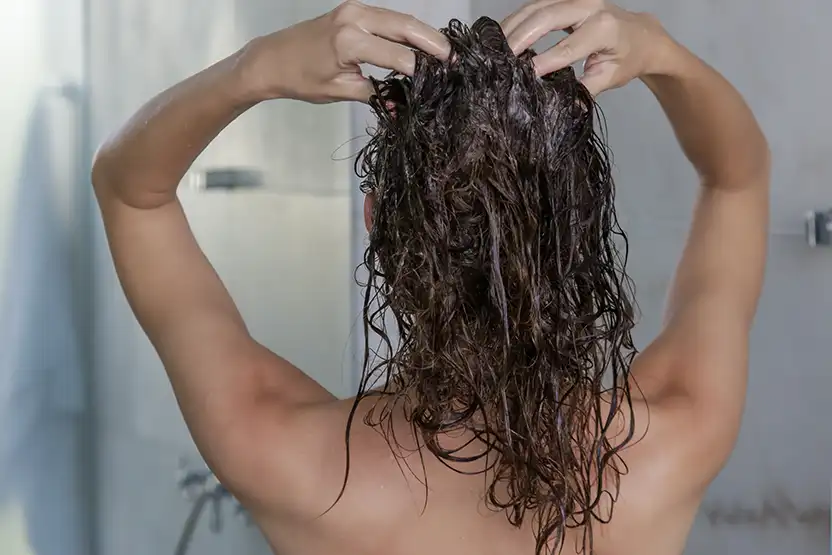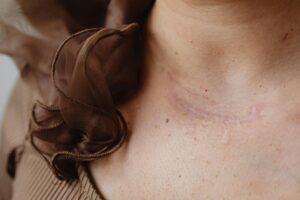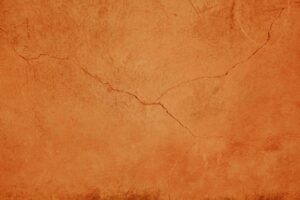Acne-prone skin often reacts harshly to common treatments. Ingredients like retinol, benzoyl peroxide, or strong acids can dry out the skin, cause irritation, and trigger more breakouts in the process. That’s why bakuchiol, a plant-derived compound with retinol-like effects, has become an ingredient of growing interest in acne care.
Bakuchiol offers the potential benefits of retinol, including smoother texture, fewer blemishes, and a visible reduction in post-acne marks. It does this without the common drawbacks of peeling or redness. But does it really work for acne?
What Makes Bakuchiol Different From Retinol
Bakuchiol and retinol affect some of the same skin pathways responsible for cell turnover and collagen production. However, bakuchiol is not a vitamin A derivative, so it does not irritate or thin the skin barrier.
While retinol may initially worsen breakouts by speeding up cell shedding, bakuchiol helps maintain balance. It encourages renewal while keeping inflammation under control, making it a better fit for sensitive or reactive skin types.
How Bakuchiol Targets Acne Mechanisms
Bakuchiol works against acne through several biological mechanisms:
Anti-inflammatory action
It helps calm the inflammatory response that fuels red, swollen breakouts. This can make active acne appear less irritated and painful.
Antibacterial properties
Studies suggest bakuchiol can inhibit the growth of Cutibacterium acnes, the bacteria linked to many acne cases.
Sebum regulation
Bakuchiol helps balance oil production, reducing the clogged pores that often lead to blackheads and whiteheads.
Post-acne healing
Because it stimulates collagen and normalizes pigmentation, bakuchiol also helps fade marks left behind by healed blemishes.
Scientific Evidence Supporting Bakuchiol for Acne
Clinical studies on bakuchiol and acne are still limited, but growing evidence supports its benefits for both breakouts and post-acne pigmentation.
A 2021 clinical study in the Journal of Drugs in Dermatology evaluated a 0.5% bakuchiol cream (UP256) applied twice daily for 12 weeks. Participants with mild to moderate acne showed a significant reduction in inflammatory lesions and post-inflammatory hyperpigmentation. The treatment was well tolerated, including among individuals with darker skin tones.
A 2022 systematic review in the Journal of Cosmetic Dermatology analyzed available data on bakuchiol’s dermatologic uses. The review concluded that bakuchiol demonstrated measurable improvement in acne severity, photoaging, and hyperpigmentation, with a safety profile notably gentler than retinoids.
These findings suggest that bakuchiol can be an effective and low-irritation option for managing acne and supporting post-acne recovery, particularly for those who cannot tolerate traditional retinoids.
How to Use Bakuchiol for Acne-Prone Skin
Bakuchiol can be introduced into a skincare routine without a waiting period, as it does not cause purging.
How to apply it:
-
Cleanse the skin with a mild, non-stripping cleanser.
-
Apply a bakuchiol serum or lightweight moisturizer (around 0.5%–1% concentration).
-
Use morning and night for consistent results.
-
Follow with a non-comedogenic moisturizer and sunscreen in the morning.
Best pairings:
Bakuchiol works well with niacinamide, salicylic acid, and azelaic acid. These combinations enhance its acne-fighting and brightening properties. Avoid layering it with high-strength exfoliating acids or retinoids in the same routine.
Product Recommendations for Acne-Prone Skin
-
Paula’s Choice 0.3% Bakuchiol + Peptides Treatment – balances texture and helps reduce post-acne marks without irritation.
-
The INKEY List Bakuchiol Moisturizer – non-comedogenic, ideal for oily or combination skin.
-
Medik8 Bakuchiol Peptides – clinically supported formula that targets blemishes and uneven tone.
-
Herbivore Botanicals Bakuchiol Serum – gentle, hydrating serum suitable for sensitive skin types.
FAQ About Bakuchiol for Acne
Can you use bakuchiol and retinol together?
You can, but it is rarely necessary. Both act on similar skin pathways. If you combine them, use retinol at night and bakuchiol in the morning to avoid over-stimulation.
Is bakuchiol safe for oily skin?
Yes. Bakuchiol can help regulate excess sebum while maintaining hydration, making it suitable for oily or combination skin.
Can bakuchiol fade acne scars?
It can help improve post-acne pigmentation and texture by stimulating collagen and evening out skin tone over time.
How long before you see results?
Most users notice smoother texture and reduced redness after 6–8 weeks of consistent use. Post-acne marks may take longer to fade.
Can bakuchiol cause purging?
No. Bakuchiol does not increase cell turnover in the same way as retinoids, so purging is unlikely.
Is bakuchiol safe to use with salicylic acid?
Yes. Studies show that combining bakuchiol with salicylic acid enhances results for acne-prone skin while remaining gentle.
Is bakuchiol pregnancy-safe?
Yes, it is considered safe during pregnancy and breastfeeding. Always check with your dermatologist before introducing new actives.





